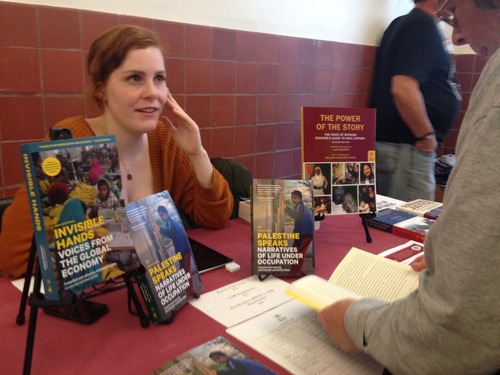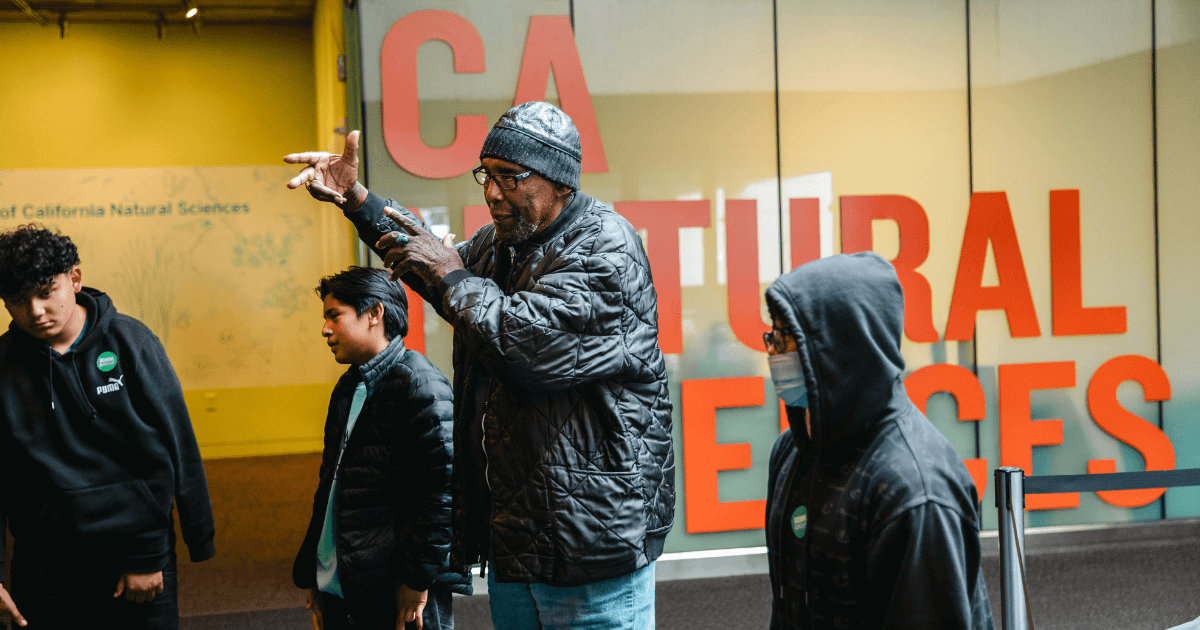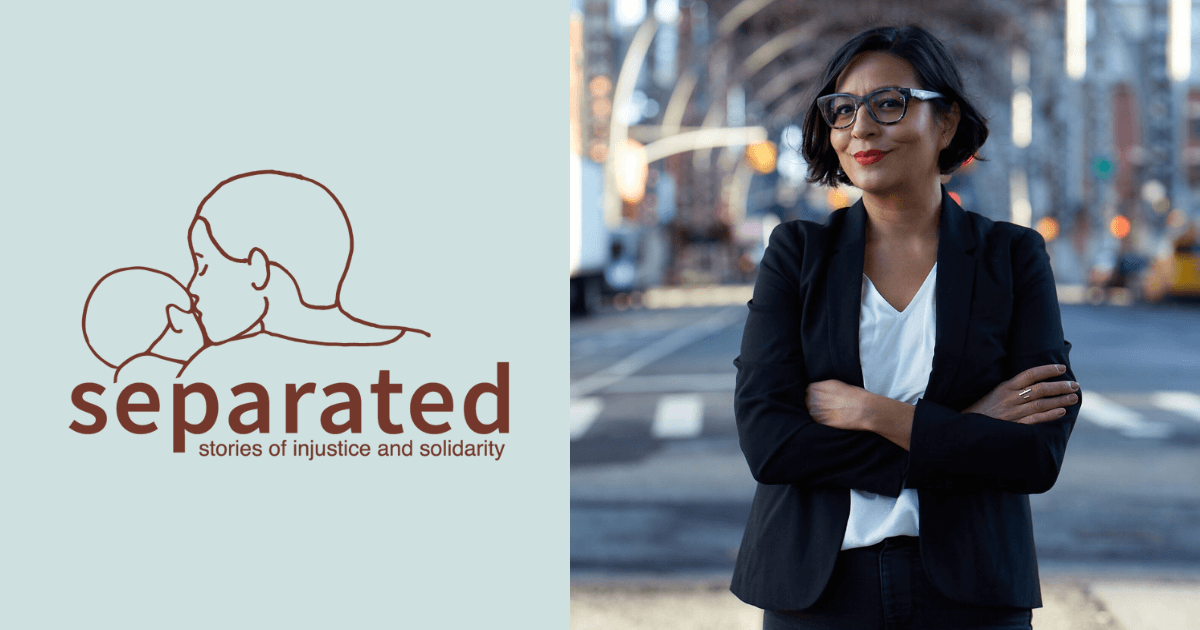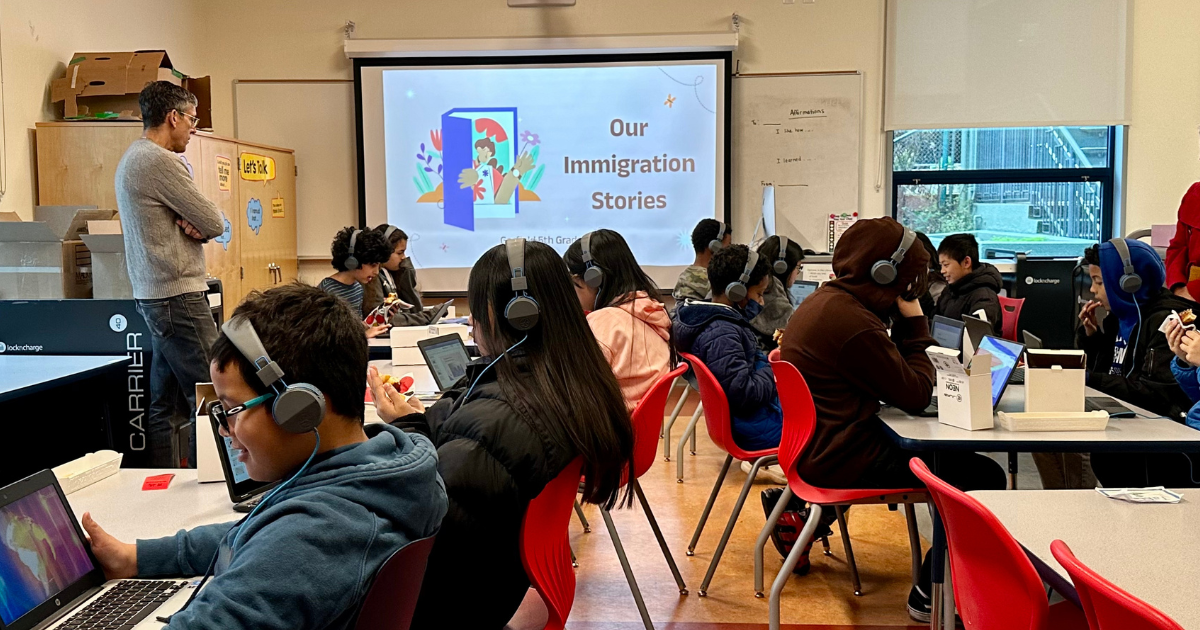Editor’s Note: The “I, Witness” blog series explores the ethics, challenges, and possibilities of teaching and conducting oral history.

The Delicate Act of Oral History
By Inge Oosterhoff, former VOW Education InternBefore starting as an intern at Voice of Witness, I had little experience with oral history. I came to Voice of Witness as a Dutch MA student of North American Studies, and oral history was not something I regularly came across. Personal anecdotes would occasionally show up in secondary texts to illustrate an author’s point, but rarely did I encounter stories told in people’s own words, or have the opportunity to engage with these stories without adopting the strict academic rules of historic, literary, and sociological research. However, it was the plethora of people’s stories that built up American history that drew me to my field of study, and I was
excited to be introduced to a new approach to those stories at Voice of Witness. Oral history seemed to offer a much more personal and far less restricted way to do research than the academic methods I had been taught thus far.
During my internship, however, I carried out a small research project that challenged me to reconsider the glorified vision I had of oral history as unrestricted by rules and characterized by endless possibilities.
In order to have my internship graded, I needed to produce a short research paper. I decided to interview different contributors to Voice of Witness’s upcoming field guide to community-based oral history, The Voice of Witness Oral History Handbook. Along with essential tips and tricks for budding oral historians, this field guide includes case studies from a dozen oral historians who reflect on their own, unique oral history projects. I interviewed some of the contributing authors about their feelings and thoughts regarding oral history in general and their projects in particular, including their hopes, challenges, and successes.
The most important lesson I learned from these interviews is that oral history’s versatility sources both its unique values and its unique challenges.
The case studies that will feature in The Voice of Witness Oral History Handbook cover a wide range of topics: from domestic abuse to Tar Sands resistance to oral histories from Fukushima. Regardless of their projects’ topic, each contributor believed that oral history provided a unique and valuable approach to their research, that it was an approach that touched deeper under the surface than most forms of journalism or academic research.
However, the personal value that characterizes oral history also asks for great care and responsibility from the oral historian. In oral history, the researcher is not only responsible for their own research, but also for the stories and (sometimes literally) the lives of others. For example, Sienna Merope, whose project with Andre Dao centers on refugees’ experiences of mandatory detention in Australia, mentioned that the act of recording peoples’ stories could jeopardize their refugee application. Transcripts of interviews could be subpoenaed in court, negatively impacting the court’s decision. Even a slight inconsistency with previous statements could lead to a rejection of the case.
But even if the sharing of a story does not clearly upset the narrator’s life, there are complicated questions that the oral historian has to face. Journalism student Natalie Yemenidjian, for example, questioned the traumatic impact her query might have on a young survivor of the nuclear disaster in Fukushima. Claire Kiefer, from Voice of Witness’ education team, lost track of one of the incarcerated narrators she interviewed, leaving her unable to consult him about the publication of his narrative. Stephanie Thomas, whose project explores the protests against the southern Keystone XL pipeline, faced the challenge of entering into a community she was outside of. These are just a few of the situations that oral historians deal with.
Oral history does not merely deal with stories, but with the people behind them. This causes oral history to be motile, which makes it all the more interesting, but also makes the conduction of oral history all the more challenging. There is no predicting how an oral history project will unfold, and there is no strict rulebook to ensure a successful outcome.
This is what makes a field guide like The Voice of Witness Oral History Handbook so valuable. Not only does it prepare oral historians for the inevitable questions that will present themselves on the way, but it also allows them to learn from the experiences of others. Readers can draw inspiration from the different case studies for their own oral history projects, and they can take pointers from the successes and failures of those who went before them. Hopefully the handbook will encourage those who are as new to oral history as I am to successfully embark on their own oral history projects.




